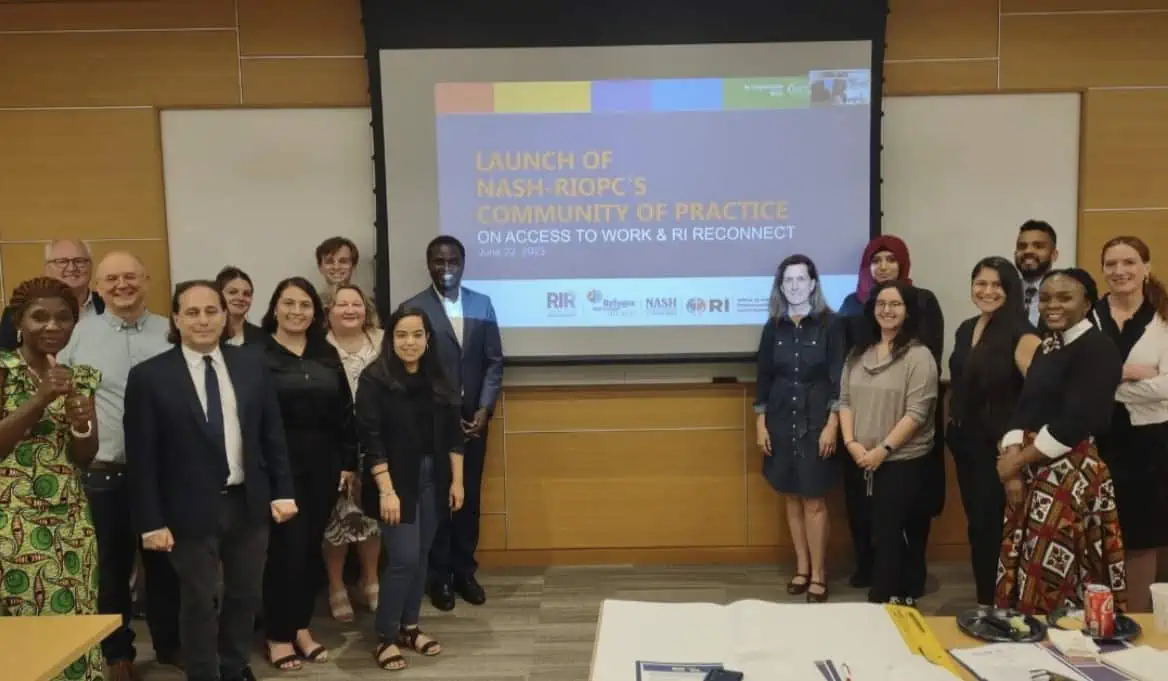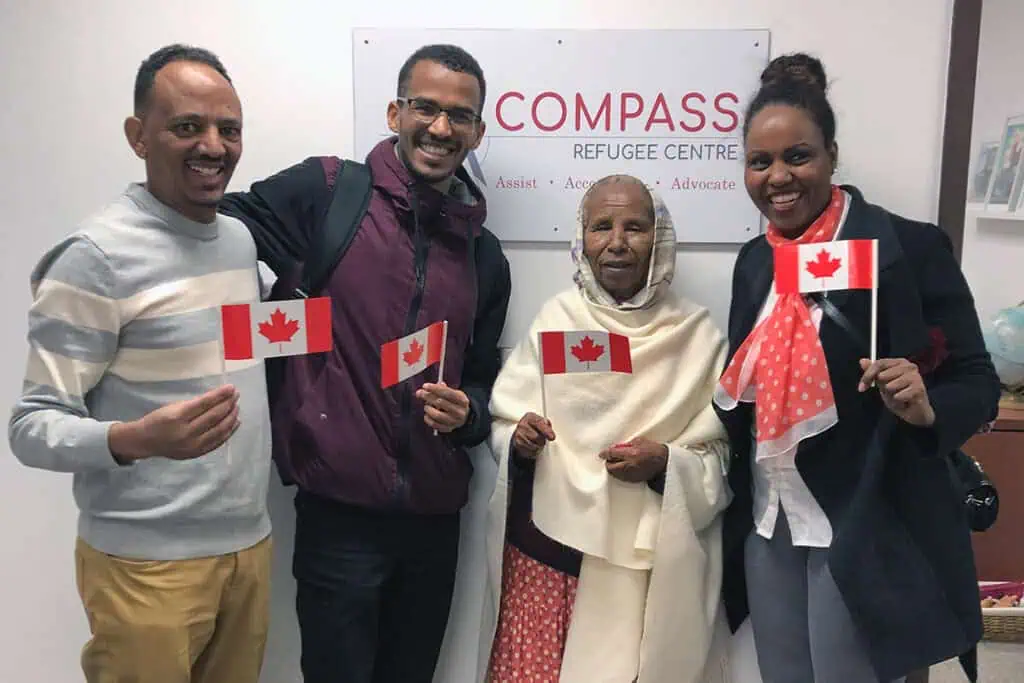How University Campuses in Rhode Island are Advancing Refugee Inclusion
Refugees arrive in the United States with tremendous skills, but too often face a tangle of barriers that make it hard for them to get good jobs and other critical supports. And too often, traditional resettlement approaches inadvertently create additional challenges. For example, resettlement agencies are typically focused on ensuring that refugees achieve “rapid economic self-sufficiency” – a goal that pushes many newly arrived refugees into survival jobs, hindering their ability to take steps that will leave them better off in the long run.
State university systems can complement the work of resettlement agencies and are uniquely positioned to provide supports for both short-term and longer term needs. With this in mind, the National Association of System Heads (NASH), which represents public systems of higher education — educating 75 percent of the nation’s higher education students — and a grantee partner of the WES Mariam Assefa Fund launched an innovative Refugee Resettlement Initiative (RRI) in 2021. The initiative started as a call to higher education systems to help welcome those arriving from Afghanistan after the fall of Kabul. Since then, the Refugee Resettlement Initiative has expanded to mobilize campuses in support of refugee and displaced students, scholars, and families from around the world.
The Refugee Resettlement Initiative, which received seed funding from the Fund last year, works within state infrastructure to build pathways for refugee inclusion in both higher education and the workforce. Now, in 2023, a new grant from the Fund is providing NASH with continued support to mobilize higher education systems at a new scale to support refugee resettlement in the U.S.
Campuses are key players in the successful inclusion of refugees and migrants in any state. “Universities are often a first stop for refugees,” said Shannon Gilkey, Ed.D., Rhode Island commissioner on postsecondary education. “Although they may encounter barriers, such as housing, English skills, or tuition fees, we have the mechanisms here in Rhode Island to address those barriers while they simultaneously earn their degrees and post-secondary credentials.”
Supported by the Fund, NASH’s Refugee Resettlement Initiative is working closely with the Rhode Island Office of the Postsecondary Commissioner and higher education leaders across the state to expand the office’s wraparound support program, known as RI Reconnect, to refugees and other newly arrived migrants. One of the people crucial to this work is Hourie Tafech, a special advisor at the Refugee Resettlement Initiative and a former refugee herself, Hourie recognizes the hardships of arriving in a new country with few resources.
“We need to make sure that refugee communities are being supported,” she said. “Many have education and licensing from their home countries, but it takes time and effort to get these verified. To do so, you need to take a licensing test, English test, verify your credentials, and ensure you get the license in the U.S. RRI is working to facilitate this process,” Hourie says.
With state-based programs developing across the country, NASH’s Refugee Resettlement Initiative is helping to transform the refugee resettlement landscape by institutionalizing new and wide forms of refugee protection on university campuses that extend beyond scholarship support. Further, they are fostering communities of engagement at the state and community levels, with volunteers and implementers who may not otherwise have considered themselves as partners in refugee welcome and resettlement.

In the long term, the goal of the NASH Refugee Resettlement Initiative is to build a national movement among higher education institutions to see themselves as crucial stakeholders in refugee inclusion and success, and to see migrants as key to cultivating inclusive and informed campus environments. The NASH Refugee Resettlement Initiative’s work has already activated six state systems including Rhode Island – in Kentucky, Washington, Maryland, New York, and Missouri – to provide comprehensive refugee resettlement services. The initiative is also actively supporting global efforts to raise awareness of the wider role that universities and colleges can play in supporting the success of refugees and other forcibly displaced individuals.
In Rhode Island, the Refugee Resettlement Initiative is working with the Rhode Island Office of the Postsecondary Commissioner (a NASH member system), private colleges, the state refugee Coordinators, a resettlement agency, state government, and advocacy partners, including WES Global Talent Bridge, to mobilize state leadership and private support for the expansion of RI Reconnect to refugee and migrant populations.
Said Dr. Gilkey, “RI Reconnect is a vehicle for equitable system-building in our state, and that is a goal that many can and do support.”




